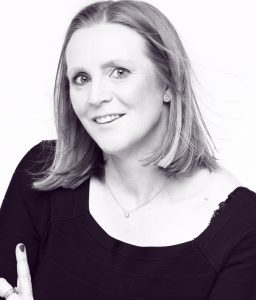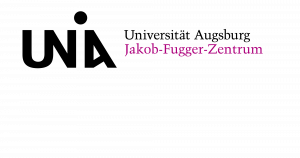
Could you please introduce yourself and your work?
I was lucky enough to be brought up in several different countries (England, Scotland, Switzerland, Venezuela and Belgium) and to go to university in the U.K. and in France. Until 18 months ago I worked in France, as a professor at the Université de Lorraine in Nancy, which has a joint study programme with Augsburg, thanks to Rotraud von Kulessa, my colleague in Romanistik. I am now the Professor of French at Oxford, which is wonderful. I am a fellow of All Souls, a beautiful College in the centre of Oxford—and my study overlooks the iconic Radcliffe Camera.
Which role do languages play in your life?
As I was brought up speaking both French and English, languages are a way of life and a part of my identity. I also love learning new words and how they work or where they come from. I’m sorry not to have more occasions to speak some of the foreign languages I have studied—or picked up along the way. I’m happy that by spending time in Augsburg I am getting to practise some German.
What is your favourite book?
It would be impossible for me to choose a single book. A couple of French novels I find admirable are Laclos’ Liaisons dangereuses, which I have edited, and Flaubert’s Madame Bovary. I enjoy reading widely, fiction, poetry, but also non-fiction.
How did you develop your passion for literary studies?
I have always loved reading. I had some inspirational teachers at school. I really enjoy my job!
Could you please briefly explain your project (Transcultural European Literature) with Ms. Kulessa here in Augsburg?
Rotraud von Kulessa and I have worked together quite frequently. Our most recent venture is an anthology of Enlightenment texts about Europe (originally written in French, German, Spanish, Italian and English) which are freely downloadable.
We put the anthology together in French, very rapidly, for it to come out before the French elections. My colleagues and 121 students in Oxford have translated it into English and we managed to have it ready for the first anniversary of the Brexit referendum, which many of us consider to have been a very regrettable day for Great Britain and for Europe. You can read The Idea of Europe. Enlightenment Perspectives free online here:
There will also be a German translation with the help of students from Augsburg.
Which topic have you worked on so far?
I have done a lot of work on the novel and poetry in the eighteenth century, but also on women’s memoirs. There is a cultural history aspect to some of my research: I have written on Marie Antoinette as a literary and historical figure, for example. I also have an interest in medical humanities and have looked at smallpox inoculation in the eighteenth century and its impact on mentalities.
What are your goals for your stay at the University of Augsburg?
I’m looking forward to learning about how teaching is organised here. I enjoyed the Aktionstag called Gegen einfache Wahrheiten, which brought students and teaching staff together in a less formal way, to discuss wide-ranging social concerns, and involved engaging with the wider public.
What relevance does the work with the students have for you?
As I mentioned, I enjoy teaching. I always learn new things when preparing my classes. I enjoy the contact with the students, which is intellectually stimulating.
Why did you choose Augsburg for the guest professorship?
I was invited to Augsburg and am delighted to be here. I very much enjoy working with Rotraud von Kulessa. I am looking forward to looking into some of the bibliographical treasures in the Augsburg libraries. I also hope to visit some of the parts of Bavaria I do not know and to take advantage of the natural and cultural resources of this beautiful part of Europe.
Author: Janina Girschick, Andrea Schneider
Pictures: Catriona Seth, Jakob-Fugger-Zentrum

